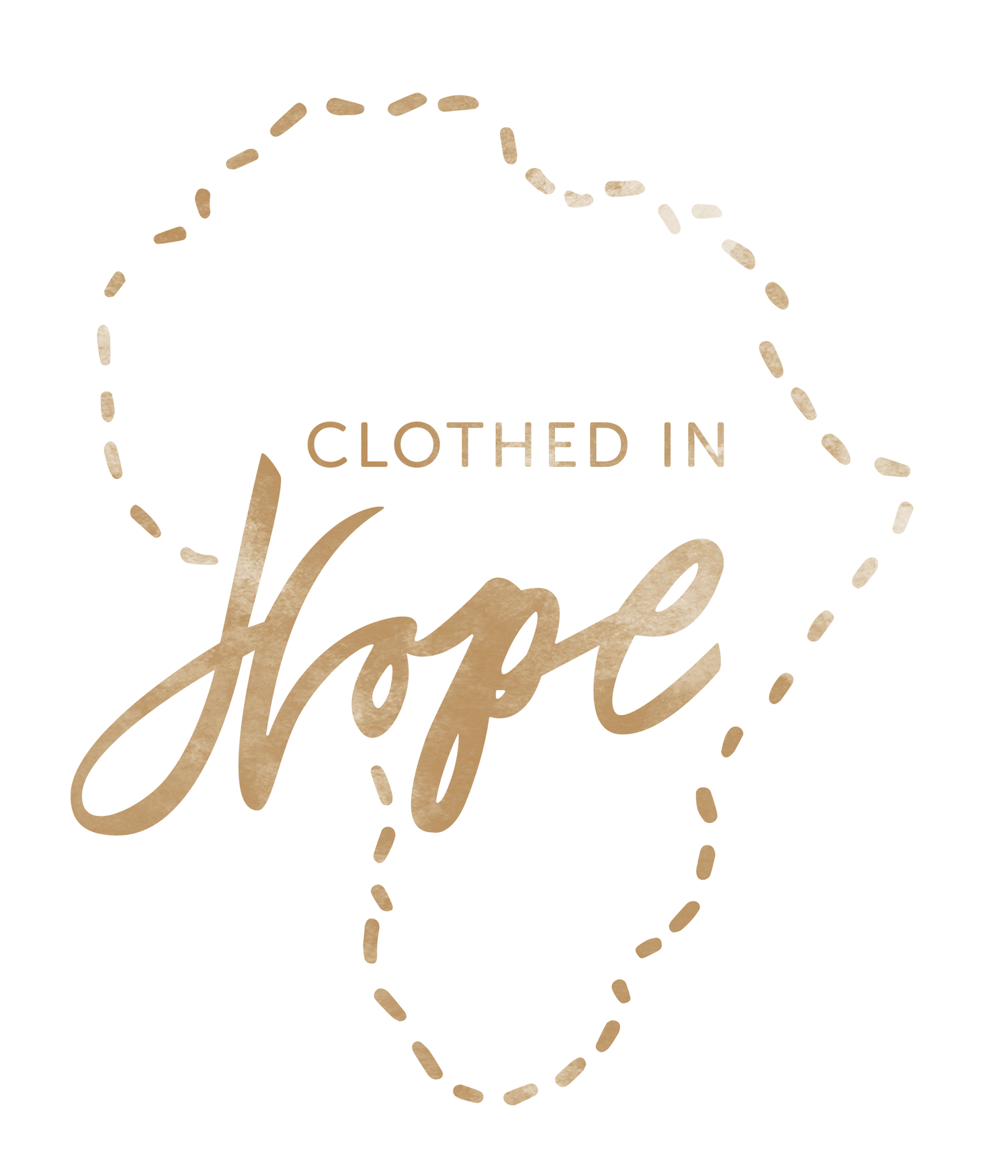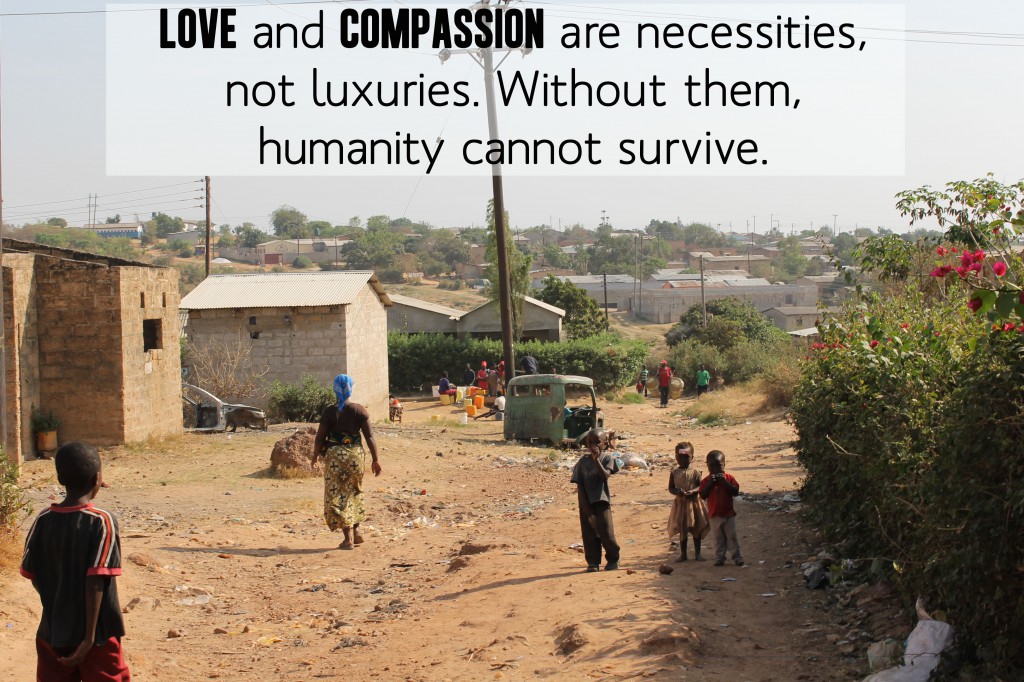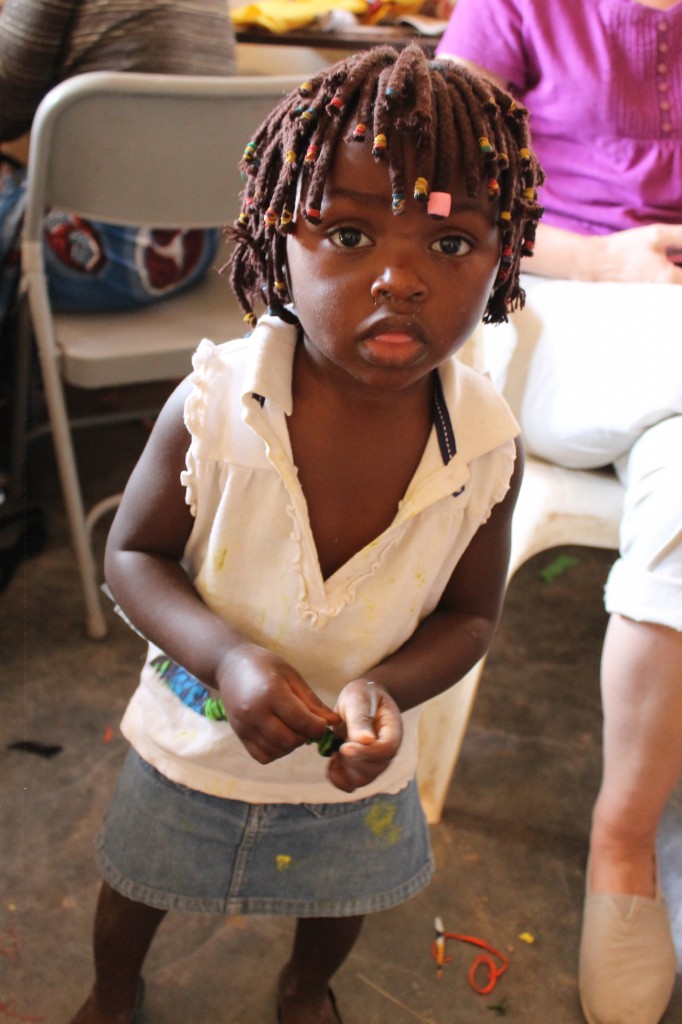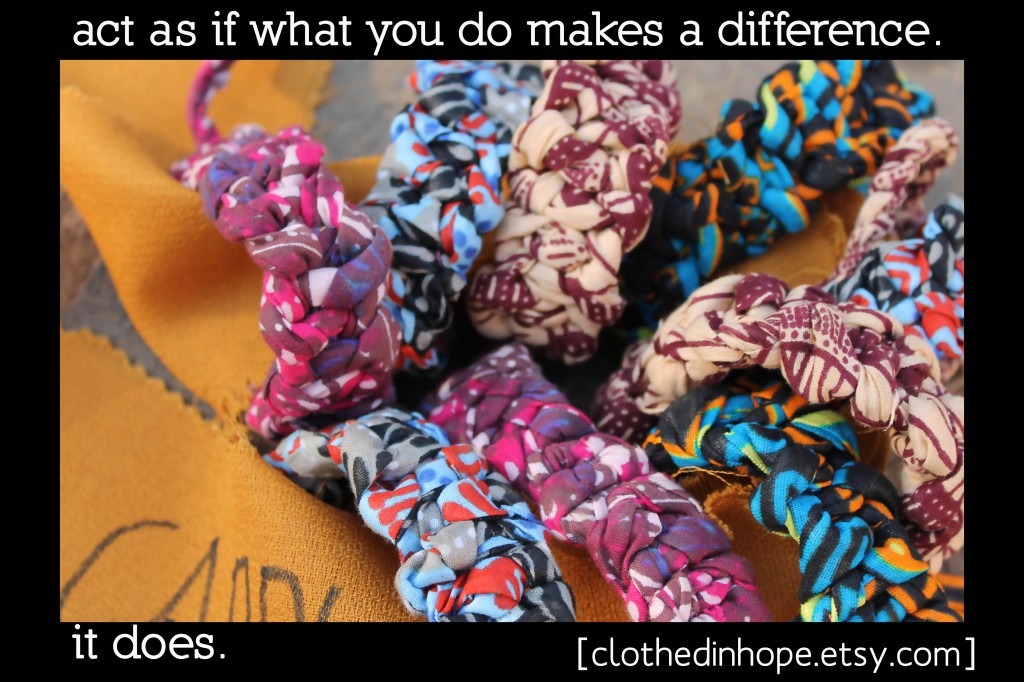We need YOU
Join us in our campaign to purchase the Chikondi Community Center to allow our program to continue through 2013 (and tell everyone you know!). Tweet this, share it, help us spread the word that we've only got a month to make it happen! Click HERE to visit our campaign page on indiegogo & check out all the great Perks!
Tis the Season
Last Thursday I was able to call and talk to all of our CiH women, our Zambian sewing instructor that’s been filling in while I’m back in the States, and even 3 little ones, George and Jona (5), and Joshua (3), sons of Elina and Tresa. The squeals of “we miss you” in the boys’ voices made my heart about burst open, but to hear 11 of my best friends, the beautiful women of CiH, exclaim the same really shook me up for that entire day, but in a great way.
Confession: it’s easy in America to do American things with an American timeframe and American tendencies without stopping for a second to think that the world is so much bigger. And I’m guilty of it.
For 20 minutes, I got to hear what they’ve been up to, hearing the joy in their voices with every single update. It was fascinating to hear about daily life there right now, contrasted with the (mild in NC) winter in the US. It’s the rainy season in Zambia, hot and muggy with flooded roads, but a cool relief when the rains are falling. School terms are continuing, and students like Tresa’s youngest, Joshua, are enjoying attending school for the first time. On the downside, inflation is still high, and food shortages are becoming an issue as their staple food is being smuggled to a neighboring country who’s experiencing alarming conflict. Zambia is also re-vamping their currency, which is scheduled to launch sometime in January. While I’m back in the US, Zambia is still growing and changing as a third-world country with great potential in its young and eager population. Incredible stuff.
Specifically with CiH, the sewing training program isn’t just continuing; it’s thriving. Elina told me that there are so many Chikondi bracelets made right now, they’re overflowing from the bags they’re in. The women have also learned how to make 6 different types of skirts, they’re learning how to make dresses without patterns (an incredible skill, just to let you know, if this vocab isn’t so familiar to you), and they’re starting to learn how to make school uniforms next week. The women have used the training they’ve acquired, in both business and sewing, to sell the quality products they’ve made, even selling in local markets. The money they earn from your purchase of Chikondi bracelets, the women are able to set aside to purchase fabrics and notions to create these other garments for sustainable, independent incomes. Their voices are proud and enthusiastic. These women aren’t the same women I met back in July. Hope has changed them from the inside out.
Connecting with the women to hear what they’ve been up to, though, reminded me of why things are so crazy this season with fundraising, why I’m doing what I do, and why you are such a vital part of this equation too. It’s not a burden- it’s a gift. It’s a gift to be involved in the lives of people across the world, learning from them, blessing them, sharing life with them, and seeing just how love impacts entire families and communities.
So while this holiday season is filled with an emphasis on generosity and giving, let’s be reminded that the gift isn’t really the gift at all; it’s the giving, the recognition that what we have can impact lives across the world. The recognition that we are beyond blessed. The moment when we give that someone else realizes they’re worth it. It’s our joy to be a part of the lives of 11 Zambian women, and it’s our joy to give this season. Thank you for being a part of what CiH is doing in Zambia and in the US this holiday season. Thank you for helping us get just one step closer to our goal of 70K for 2013 through your support, purchasing of Chikondi products, and encouragement. As the women wanted me to pass along to you from our Thursday phone call, “Zikomo” (thank you).
With Chikondi, Amy
Happy December!
How about we start out this month with a CLEARANCE sale on our Big Africa T-shirt?! On sale for $5 (originally $12) TODAY only. Get a head-start on that holiday shopping and give the gift of hope. Click HERE for yours.
Day 10: Zikomo (Thank You)
We want to thank you deeply and dearly for having the interest and taking the time to read through this recap. We wish we could share with you every single thing that has happened during our in-country launch, but we trust what we have shared about the powerful impact of hope will inspire you as much as it has inspired us. Thankfully, hope isn’t just found in Zambia. It’s global, it’s contagious, and it’s changing the world. We invite you to be a part of what we’re doing to empower, educate, and spread hope throughout Zambia. Our needs for this upcoming year are huge as the potential for impact continues to grow and the program is replicating from city to village. We currently need $4,300 each month ($51,000 for the year) to continue operating in 2013. This covers our cost-efficient operating expenses, and allows for continued growth of the program. We’re in great need of monthly donors to help fund this growth.
The facility described above, is a separate $25,000 investment in the Ng’ombe slum compound community. It’s not just 10 rooms with walls; it’s a center for hope in a place that runs deep with poverty and oppression.
How will you invest in bringing hope, empowerment, and change to the people of Zambia? It’s an investment that gives back a hundredfold as you are directly impacting the lives of those who have the ability to change their entire nation.
Please don’t hesitate to contact me via email amy@clothedinhope.org to further discuss donation, collaboration or sponsorship opportunities. If you’re ready to donate today, please visit www.clothedinhope.org/give. Zikomo. Thank you.
With Chikondi, Amy Founder & Executive Director
Day 9: The Impact
Looking back over the past 3 months, words fail to express all that’s happened, but I hope you’ve enjoyed a glimpse of it all. It’s nothing of us, everything of the power of hope. I’ve come to realize, though, that this program hasn’t just impacted the lives of 11 women. Sure that’s an incredible part of it, even if it were to stop there. Even if we made a difference in the life of one woman, that would be enough. But with the common theme, let’s shatter even that expectation. The ripple effects of this program are immeasurable, but allow me to share with you just a few ways American donors and supporters have brought hope to 11 women, and to so many others. These 11 women have experienced great benefits through being the first participants in our organization. Even greater, they are of great benefit to their families, their community, and to the nation of Zambia. Here are just a few numbers to show how the impact of 11 creates so much more than that. Eleven women empowered and educated through Clothed in Hope’s skills-training and income-generating program have made a way for:
19 of their children to enroll in private or higher education for a stronger educational foundation
35 children (from all 11 women) to enjoy hope of a brighter future through the strengthening of their family and work ethic from their mothers
172 people (from all 11 households) to receive regular, more substantial meals to fight malnutrition and resulting stunting, food-borne, and water-borne illnesses
12 women in the remote village of Muchochoma to learn the skill of sewing and business management for the benefit of their entire village
19 at-risk boys from Kakabalika Child Foundation to learn and practice the skill of hand-sewing, empowering them to take pride in their work and bright possibilities for their futures
6 women to begin a savings fund to practice financial responsibility through long-term thinking
And for 2 of our CiH women, they’ve already taken the business skills and income earned from Chikondi bracelets to begin their own small businesses.
Carol, a mother of 3, is an incredible seamstress and picked up the skill right away. She’s bright, motivated and empowered. She’s started her own business selling bed sheets that she’s sewn herself from the skills and capital gained throughout the CiH in-country launch. She’s proud of her business and looks forward to future growth.
Margret, 25-year-old widow and mother of a 3-year-old, seems to have every excuse for a poor outlook on life, left alone to raise her daughter even through the oppression she faces daily. When asked what she was thankful for, Margret replied, “for giving me hope to go on with my life.” Not speaking a word before, Margret now brings such joy to our group and is a great friend to all. Soaking up every lesson from our training program, Margret has used her bracelet income to gather materials and build a small grocery stand near her house. She estimates the grocery to be open at the end of October 2012. She’s not only investing in her future through business, but also in the life of her 3-year-old girl, Rabbecca.
Day 8: Taking It Back
For this news, let’s flashback to 2 years ago, the first time I was in Zambia for a short-term trip. We spent our weekends at an orphanage in Ng’ombe, and the intensity of poverty and hope forever impacted my life. Elina (yes, our Elina) helped to run that facility, providing a safe place for children abandoned or forgotten by their parents. Just a few short months after we left, Elina was targeted as the vulnerable one by her family just by being the only widow. As a result, her family drove Elina and her children out of the facility through greed and corruption, leaving Elina’s family without a place to live and forever hurt by the betrayal of her own family. The orphanage ceased to exist. The remaining family stole any money that poured in to help with the care and education of the orphans. The orphanage building remained. No longer a safe haven for orphaned children, it became a stronghold of corruption and a beacon of deceit. The oppression that is so commonly heard of was most visible through “Orphanage” painted on the side of that building, when it was anything but. I promise this is going somewhere. Fast forward to the end of my time in Zambia, seeking out a facility for us to move our operations. Thankfully we’ve outgrown our current space, and the women are all feeling motivated as teachers, ready to see the program expand to impact even more people in Ng’ombe. I went with a friend of ours to look at buildings listed for sale, and walked up to the very place that was stolen from Elina and her family, a buliding that embodied everything messed up about the complexities of poverty, injustice and oppression. Shocked, I wanted to run, but something told me to stay.
After we raise all $25,000 needed, this place will no longer be a place stained with deceit, greed, hatred and oppression. The walls will be repainted, the building repaired to be even better than it was before. And the community will know that oppression cannot remain when hope is present. Hatred cannot exist where love lives. Clothed in Hope will take back what was taken from Elina, but it goes beyond that. Clothed in Hope will make a statement that we’re here to love, to empower, to restore better than before, to see treasure in the broken, and to be a pillar of hope through the beautiful lives of 11 incredible women devoted to their community.

With Chikondi, Amy
Day 7: Transitions
Nearing the end of our in-country launch, I realized it was just the opposite of an end. It’s a beginning. Our Clothed in Hope women are confident, they’re empowered, and they are fueled by sacrificial generosity. They want to give back what they’ve been given. The women have formed a partnership and relationships with 12 women of a remote village 2 hours outside Lusaka, called Muchochoma. The village lacks any wells, schools, clinics, community buildings, stores, industry, and so much more. They’ve even created their own language as a result of their remote lifestyles. Yet our women all connect on one common belief: hope is real and love is powerful. They’re not separated by cultural differences but rather united by humanity. What a beautiful example of hope spreading beyond Ng’ombe, beyond this city, to a remote village to begin again what was established in the lives of the original 11 CiH women from Ng’ombe.
We’ve brought in a local tailor, a widow, who shares the heart of our organization, to continue the training for our CiH women. Looking around the room during our first session with her there, I sat stunned at all that had happened. Women who started out reserved, silent, and discouraged are the same women with permanent smiles on their faces, whose laughs echo throughout the room, and whose confidence is renewed in ways that are simply unexplainable. In addition to the continuation with training in new ways, another huge thing has happened...
Day 6: Paperwork & Change of Plans
The PaperworkAs the representative of a foreign NGO, I was fully prepared to follow the timeline of others here: 6 months for full approval and certification, thousands of dollars spent in the process of stamping, collecting, copying, preparing, and seeing the legal documents through the journey to completion. But my expectations were way off. When a community catches onto a vision that seeks to benefit its members in huge ways, the community takes you in as their own. And that’s just what happened with us. Represented by a community leader in the Ng’ombe slum compound, I was led through the process of forms, lines and offices, in just one short week with minimal fees paid, to receive our official documents in my hand. Clothed in Hope is as official in Zambia as it is in the United States, and it gives us great freedom and joy in knowing that we’re really just beginning here. The possibilities are endless.
Change of Plans I was ready to continue our routine of daily lessons and production of Chikondi bracelets, but I soon came to grips again with a too-low expectation. Elina came up to me after one training day and said, “Why don’t you stay home to work for 2 days out of the week? We have it under control here.” Maybe in America this sounds normal, but it shatters every cultural stigma in Zambia. Our women have taken ownership of and pride in our organization. They manage each other under a set of group-organized rules complete with a judicial board to regulate any issues that arise. Going into month 2, community-owned was becoming a deeper-rooted aspect of our organization, and we are so thankful for that.
Day 5: Not Just Producers
One weekend “homework” assignment turned into a beautiful part of our organization. When women were asked to create bracelet samples using their stitching knowledge, most faces were frozen and blank. This culture isn’t one that fosters independence. It doesn’t celebrate creativity or individuality. Transfer this into years of education and imprinting it into the way the women live their lives, and this homework assignment was proving to be a much bigger deal than I thought. Monday morning came around and the women were beaming, proud to show off their work. Cutting out fabrics, Margaret exclaimed, “I’m a designer!” Talk about empowerment. These bracelet designs didn’t stay samples for long. The creations were incredibly unique and beautiful, and the women decided on 2 bracelets to start producing for income-generation in hopes of CiH becoming self-sustainable after this start-up period. Thus were born the Twist bracelet and Knot bracelet. With the announcement of our first purchase, the women cheered, whistled, screamed, and sang songs of joy. It’s not a bracelet. It’s someone telling the women that what they create, that who they are, is beautiful and worth investing in.
Our Clothed in Hope women branded our handmade chitenge (African fabric) products with the name “Chikondi” meaning “love” in their native tongue. Hope cannot exist without love. When a person wears a Chikondi bracelet, they’re not only wearing “love” but also giving HOPE. An idea, a simple task, represents the very heart of our organization, while providing valuable incomes for 11 incredible women.
Day 4: The Beginning
We started our training course pretty strong with 5 days a week of training for 2 hours each day. We were thankful to use space in Elina’s house at her request. Community encourages change, and our CiH women have shown us that in huge ways. Counter to cultural practices, the women showed up early to class and left long after. When we asked Doreen if they were enjoying the format of the program, she responded, “Why else would we stay around so long?” The launch of the class facilitated the launch of beautiful friendships, a group of women to encourage, teach, and care for each other. They’re in it together. True to our model, we began classes with a strong foundation in business practices for the change to truly be community-owned. Profit was introduced as a completely new concept, as were different types of costs. Whether running a roadside tomato stand or selling handmade chitenge dresses, the women now know how to operate a profitable business. Sewing came alongside the business education, as we started out at the basics of threading a needle, went all the way to pattern making, and covered everything in between.
Day 3: The Need
The statistics are all there. The high prevalence of poverty, HIV/AIDS, unemployment, and injustice against women shape this country into one of extreme, often overlooked need. For more stats check out our website. But for now, allow me to let you in on the untold parts of women’s oppression here. Single mothers struggle to provide for their children. Many women turn to prostitution as the only reliable source of income. Others seek out a husband to relieve the financial burden, but can only do so at the expense of their children. A man who marries a formerly single mother will not accept her children as his own. Children are often starved and deprived of a basic education as a result. Just talk to Tresa about the intense struggles faced by single mothers…
Widows not only face the grief of a lost husband daily, but also are seen in their culture as “unfit” for another marriage. It’s believed that something was wrong with the woman for her husband to die. The widow is left without any rights to her deceased husband’s finances, land, property or assets, leaving the family homeless and with a long road ahead of them. Elina, mother of 6 and grandmother of 2, unfortunately knows all about life as a widow, after her husband died just 7 days after a mosquito bite.
So it sounds like marriage is the way to go, right? We’d love it if that was the case. Married women often enter marriage for the sole reason of financial provision. With little access to jobs, women see a man as a way out of a life of poverty, but it rarely works out as planned. Many married women experience domestic abuse and neglect. The hardship doesn’t ease up for women regardless of their marital status. Emeli knows all about it.
We’re shocked at the courage these women possess to take on each day on behalf of her children, wanting a better life for them than they’ve experienced themselves. We’re inspired by their belief that hope is real, and has the incredible power to change their lives for good.
Thankfully the story doesn’t end at oppression….
Day 2: Our Model
We seek to meet the vulnerable woman of Zambia in her oppression, to educate and empower her through sewing and business training and to provide financial opportunity for lasting benefit and sustainable community change. It’s not about us. It’s about her. It’s about a community-owned initiative. Education is at the core of what we do. When you teach a woman how to run a business, she creates a sustainable small business for the betterment of her family. When you teach a woman how to sew, she creates beautiful handmade bracelets for income to help start up her small businesses. When you teach a woman that she’s important, treasured and loved, she is unstoppable. In a culture that tells her “no,” she is empowered to stand up and say, “yes.”
In order for our organization to truly be community-owned, our women must be involved in every decision-making process here in Zambia. And they are. From sewing machine brands to facility options to the design of bracelets, Clothed in Hope women have had a say in every part of what we do. That involvement is what sustains community development regardless of American involvement. It’s their organization, and we are overjoyed to be a part of it all.
Day 1: Are You Ready?
Just 3 short months ago, I was boarding a plane to Zambia unaware of what these months would hold for me. Two years of planning led up to this in-country launch, and I thought I had an idea of how things would happen. But if I’ve learned one thing in Zambia, it’s that nothing is predictable. Things are chaotic and difficult; corrupt, even, tending to put a damper on any foreign organization that wants to come into Zambia to work. But for us as Clothed in Hope, the pendulum has swung the opposite way. Every expectation I had has been exceeded, every timeline greatly quickened. Zambians have soaked up the success of this empowerment model, and I can confidently say that hope is spreading. This isn’t just some cliché; it’s tangible here. It’s visible on the faces of 11 women in the Ng’ombe slum compound. It has written stories here, ripple effects that create an unstoppable force against oppression and poverty. From all that has been accomplished here, it’s so apparent that Clothed in Hope is just beginning in Zambia. The doors of opportunity have been swung wide open. The need is great, and we’re ready to take our next step. But before that, I’d love to share some of these stories with you, beyond blog entries and posted photos. Huge things are happening; are you ready to be a part of them? With Chikondi, Amy Woodell, Founder & Executive Director
10 Days of CiH
It's been almost two weeks since our founder has returned from Zambia, yet our Zambia program continues to flourish. We've tried our best to keep you all updated every step of the journey, but we think it's time to reflect and recap all that really happened over the last 3 months, and all that will continue to happen over the next years. That's just another perk of Stateside reliable internet, right? So join us as we recap the Zambian launch during the first 10 days of November. Each day will be another step in our journey as we share untold stories, highlight great memories, and make an exciting announcement near the end of our 10-day reflection. You won't wanna miss it...
Just the Beginning
With bags (almost) packed and a plane ticket booked for tomorrow afternoon, it’s finally starting to hit me that this stay here in Zambia is coming to an end, for now. But the great thing is that it’s not the end at all. While I’m flying for over 30 hours back to America, our Clothed in Hope women will be continuing their skills training, specifically in pattern-making, to become incredible seamstresses. Our Clothed in Hope women will continue bracelet making for income-generation, to save enough money to launch their own small businesses.
Margret’s grocery that she’s built with her bracelet profits will be opening at the end of this month, providing an income for her entire household of extended family. Carol’s business of making and selling bed sheets has just begun, and she’ll be gaining more customers through her small business and marketing knowledge gained through our program. Carol’s business provides schooling for her kids.
Our Clothed in Hope women will continue traveling to the remote village of Muchochoma to encourage, train, and love their new friends. They call themselves the “Chikondi Club” in the village, women motivated by love and experiencing love through our Ng’ombe women.
Continuation in itself is an incredible word for us. It means that our women have taken ownership of the program to keep it going. They have been empowered and now experience hope, and they can’t help but to share it with others. They understand the effort involved to sustain a program like this, but they’re wiling to make that sacrifice to keep it going. They’ve caught the vision and believe that great change is possible in their communities and nation. They are now community leaders, women of influence, in a culture that tries to keep women believing they are of any worth. When I look among this group of women who have become great friends of mine, I am so, so proud of them.
But what if continuation wasn’t all there was to it? What if I told you that something big is brewing in our program? That the program’s impact won’t stop at the lives of 11 women and their impact circles, but will be affecting hundreds of others? This exciting news is another story for another day, one you’ll have to wait a bit longer for, but today just know this: this is just the beginning.
With Chikondi, Amy
HOPE gives life
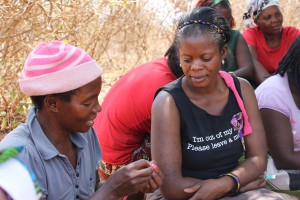 Given, pictured on the right in this photo from our training day at Muchochoma, wasn't at training class today. The one woman who comes super early and stays way past ending time didn't show up. When asked where she was, we found out that Given has been in the hospital with a terrible case of malaria. Not just a mosquito bite or a fever, but the very same illness that stole the lives of Elina and Margret's husbands, and countless others in Zambia. So it's extra personal and extra difficult for us. But this time is so different.
Given, pictured on the right in this photo from our training day at Muchochoma, wasn't at training class today. The one woman who comes super early and stays way past ending time didn't show up. When asked where she was, we found out that Given has been in the hospital with a terrible case of malaria. Not just a mosquito bite or a fever, but the very same illness that stole the lives of Elina and Margret's husbands, and countless others in Zambia. So it's extra personal and extra difficult for us. But this time is so different.
Margret and Elina's husbands passed because they couldn't afford the one pill used to cure their cases of malaria. One pill. One pill that makes the ill even more ill for a short while. But one life-saving pill.
But this time is different, because this time Given has hope. It sounds like she'll be okay. Why? Given used the money she earned from the production of Chikondi bracelets to buy that one pill to save her life. She'll be okay, and she'll live to tell the story of how HOPE has saved her life.
We hoped we'd have an impact in the Ng'ombe community and in the lives of our women, but we didn't know that this simple model of hope through love from empowerment and education would save a life this tangibly.
So when you purchase a bracelet, one that could be made by Given, know that that bracelet has saved her life. You have helped to save her from the biggest killer in Zambia. Zikomo.
